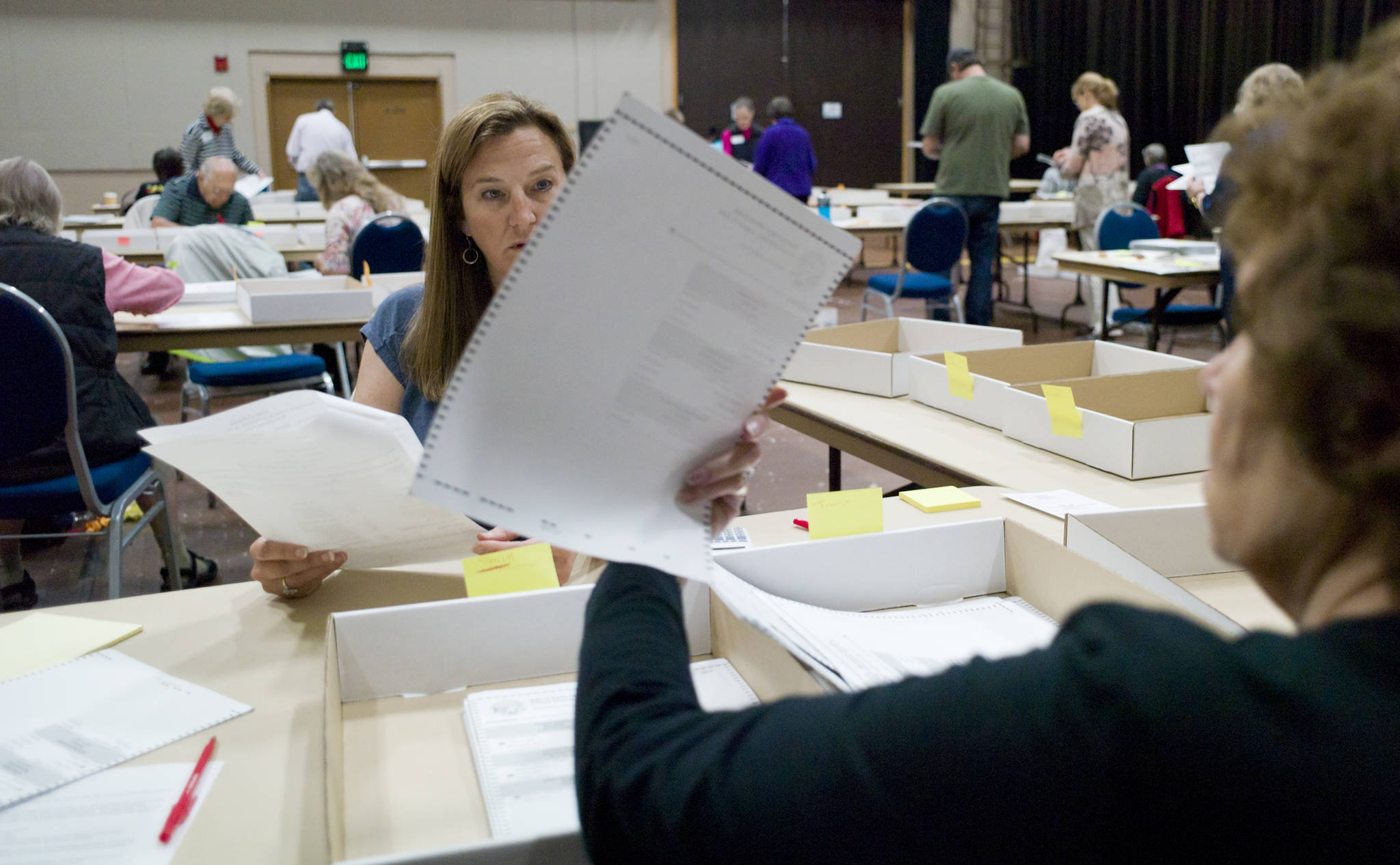The Alaska Division of Elections is investigating why seven dead people requested absentee ballots for the close-fought primary election in Anchorage’s House District 15.
The issue was among several irregularities that have arisen in a race featuring incumbent House Rules Chairwoman Gabrielle LeDoux, R-Anchorage, and former KTUU-TV cameraman Aaron Weaver. Both are seeking the Republican nomination for the district, but little-known Weaver leads LeDoux by three votes despite raising little money and doing little campaigning.
In an email Monday, the division said that in addition to the dead-voter presence, it found an unusually large number of absentee ballot forms were returned as undeliverable by the U.S. Postal Service, and the division received two completed ballots from people within the district who said they didn’t vote in the election.
“Now it’s being handed over to the criminal division (of the Alaska Department of Law) to see how they want to proceed,” said Division of Elections spokeswoman Samantha Miller. Anyone attempting to vote illegally could be prosecuted under the state’s voter misconduct statute. A violation is considered a class A misdemeanor punishable by a fine of up to $25,000 or 30 days in jail. (Punishment would be longer if the criminal has prior convictions.)
The problem ballots represent less than 12 percent of the total absentee ballots cast in the district. According to figures released Wednesday morning by the division, 243 absentee ballots have been completed and received by the division. Of those, 15 were rejected and 14 were partially accepted.
They nevertheless are critical because the race is so close and because LeDoux is one of three Republicans who joined the Democrat-led coalition House Majority last session. The Alaska Republican Party strenuously campaigned against those three Republicans.
Alaska’s absentee ballot process includes multiple steps. Voters who cannot cast an ordinary ballot on Election Day may request to print a blank ballot or have one sent to them through the mail. A voter fills out the ballot, then returns it to the Division of Elections in a special envelope whose label contains information that allows the division to verify the person is legitimately registered. That envelope must be mailed by Election Day.
If the person is not legitimately registered, the envelope is not opened and the vote does not count.
In light of the issues, the division said in a statement that it will separate the District 15 ballots into two categories: ones that “raise authenticity concerns” and ones that do not.
Ballots without concerns will be counted Tuesday and added to the Election Day total. Ballots that raise concerns will be counted separately and undergo additional verification throughout the week. All that past muster will be added to the tally on Saturday, the division’s deadline to certify the election results.
“The integrity of our elections is vital to our democracy,” said Division of Elections Director Josie Bahnke in a prepared statement. “The division will continue to look into this matter throughout the week and remove any ballots that we determine should not be counted.”
• Contact reporter James Brooks at jbrooks@juneauempire.com or 523-2258.

